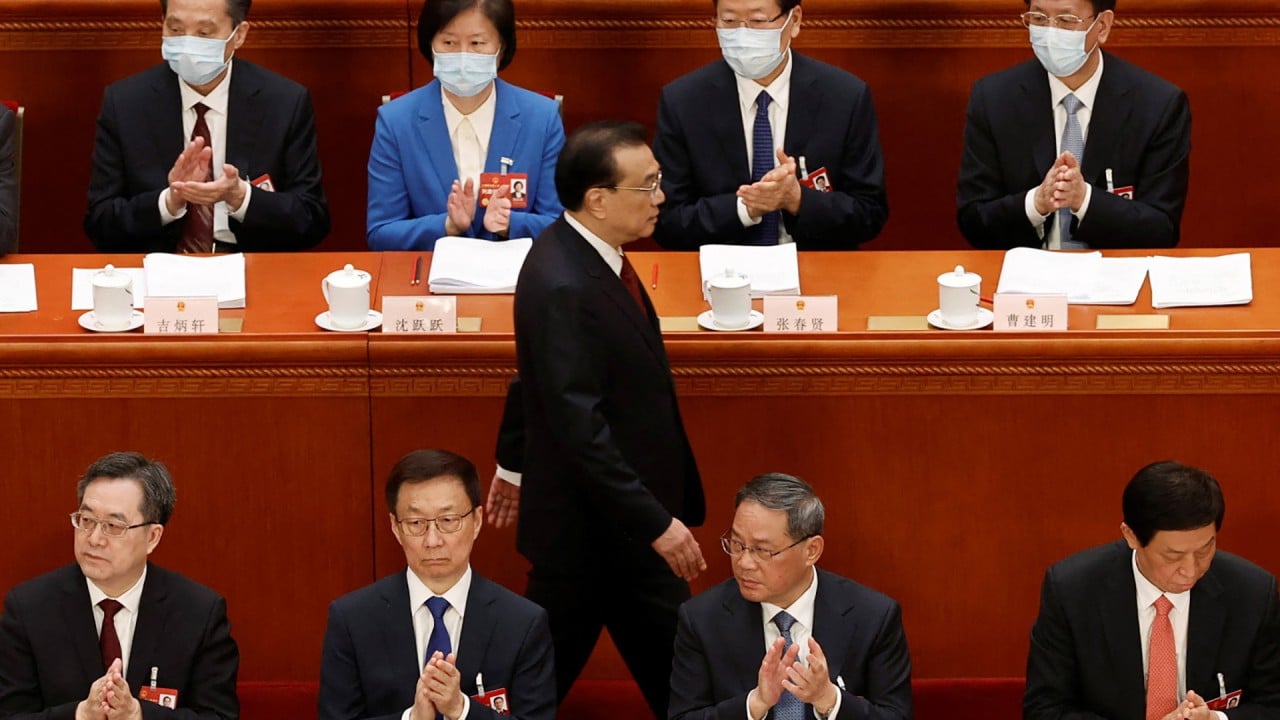
China’s ‘two sessions’: petitions upgrade ‘sign Beijing is listening’
- The State Council office responsible for hearing public complaints has been given more power in an administrative restructure
- Experts said the move is part of the leadership’s efforts to address grievances accumulated over three years of zero-Covid policies
The National Public Complaints and Proposals Administration has been elevated to the rank of an affiliated institution, putting it on a par with the taxation office. It previously reported to the State Council’s general office.
Experts believe the upgrade is part of Beijing’s efforts to address growing public displeasure about lower level government and signals a willingness to resolve complaints accumulated over the past three years of China’s zero-Covid policy.
“The status elevation signals that Beijing wants to show it cares about its people,” said Zhou Qiang, a Peking University political science scholar and senior research consultant at Offcn Education Technology Co.
The office mainly serves as a collection point for information on public grievances, which are then submitted to upper government agencies for response. Its Chinese name, Xinfangju, means the “letters and visits” bureau.
How political and economic pressure led to Beijing’s zero-Covid U-turn
The petitioning mechanism remains China’s most widely used means of disputing government actions, where many people lack the financial means to file administrative litigation, or prefer not to. Most petitioners are from lower-tier cities and rural areas.
Three years of tough lockdowns and strict quarantine controls saw protests in multiple Chinese cities, but they were mostly small in scale with complaints that were very specific about certain policies.
The zero-Covid policy was abandoned in December and Zhou regards the petitions office upgrade as part of Beijing’s efforts to address public grievance in action.
Many of the grievances had not been seen or dealt with before, and how to resolve them is a new challenge for officials, Zhou said.
In his final government work report on Sunday, outgoing Premier Li Keqiang said bureaucracy remains a concern in some areas. Officials had “failed to act”, leading to a “contravention of public desires and disregard for the public’s legitimate rights and interests”.
“[The] public’s feedback and suggestions for government work … should be given proper consideration,” he said.
Zhou said the upgrade was also part of “Beijing trying to ‘keep up with the times’ and … aligned with Xi Jinping’s call to serve the people”.
In a speech to petition office workers in May – as Shanghai, China’s richest city, was enduring two months of lockdown – Xi said their work is essential for “understanding public sentiment, gathering public wisdom and protecting the rights and interests of the people”.
Xi said the essence of the petition work is to “consolidate people’s hearts”, according to a report by state media outlet China Daily. “We should spare no effort to help people resolve their difficulties and worries.”
How China’s zero-Covid U-turn sparked a wave of public resentment
Zhou said the upgrade is also a sign that Beijing wants to extend the petition office’s function from a collector of information to a problem solver.
Jia Guochang, a lawyer specialising in administrative litigation and a partner with Beijing Weiheng Law Firm, said the upgrade would give the petitions office more say and enable it to coordinate across departments.
“If you want … a proper response, it would be very different to gain the attention from a provincial governor, as opposed to a local official. With its recent elevation to a higher level, other departments will take petitions more seriously and respond efficiently,” he said.


